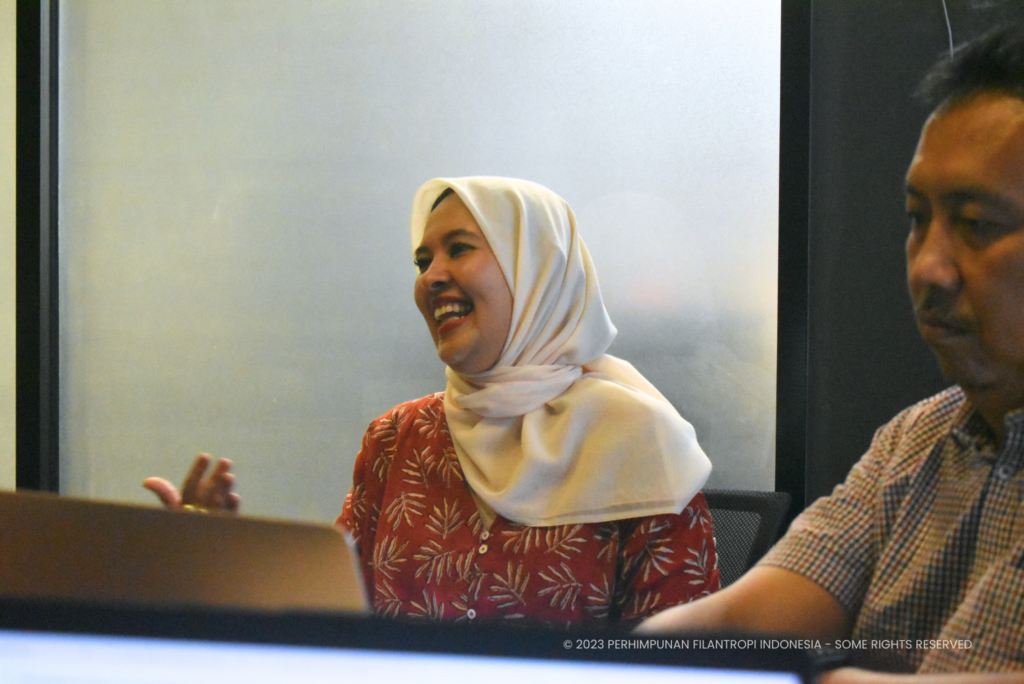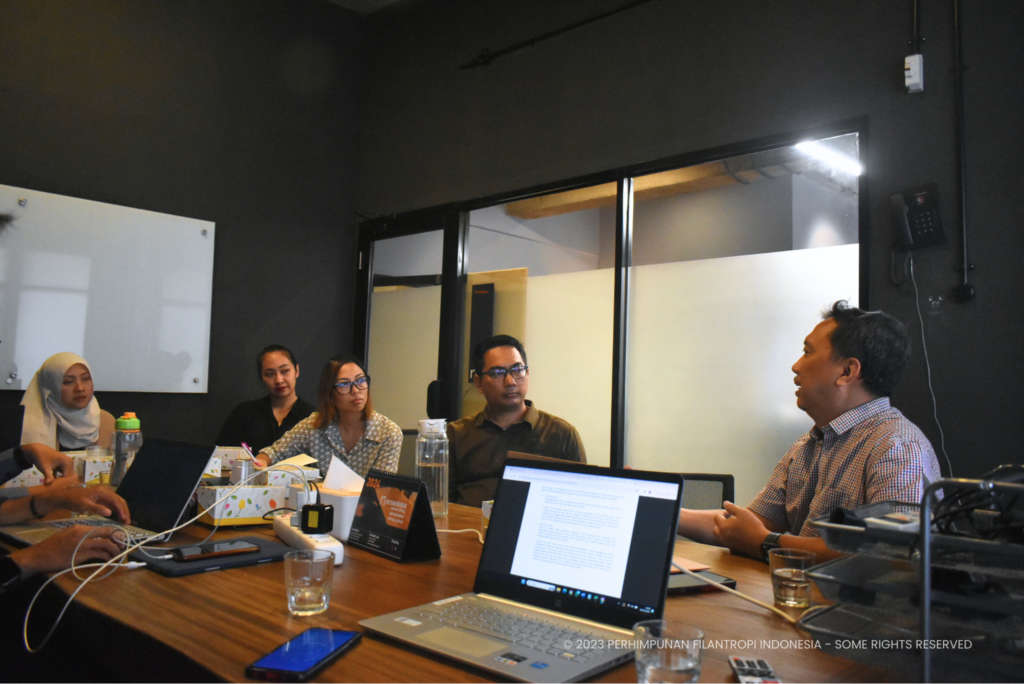Reflection Meeting on the Dynamics of Education Program Management in Indonesia

The field of education has long been a subject of interest among various stakeholders, including the government, private sector, society, and the international community. Philanthropic contributions towards educational initiatives have been estimated to reach approximately 180 billion Rupiah annually, with the most popular programs focusing on enhancing the quality of human resources, scholarships, and infrastructure. Moreover, education has gained widespread global recognition, as evidenced by including the Sustainable Development Goals (SDG/TPB) in goal 4 (SDG #4). This goal emphasizes promoting inclusive and equitable quality education and lifelong learning opportunities for all individuals.
The effective coordination of the components in the education ecosystem can significantly increase the impact of collective efforts by education activists. It necessitated the formation of the Education Philanthropy Cluster, which aims to strengthen existing initiatives and platforms while promoting stakeholder collaboration and cooperation in addressing the education sector’s challenges.
The Education Philanthropy Cluster facilitates education supporters to work synergistically and achieve a more effective impact, especially in improving the quality of education in Indonesia. The cluster has recorded various successes in 2023; however, there is a need for an open and in-depth self-evaluation to increase the capacity of the organization and the broader educational ecosystem. A shared awareness of the need for fundamental educational changes is essential to achieve more significant improvements. This awareness can only be achieved through intense and open communication and collaboration among Educational Philanthropy Cluster member organizations.
In response to the challenges faced in managing educational programs in Indonesia, Yayasan Guru Belajar, as the Coordinator of the Educational Philanthropy Cluster, undertook the initiative to organize the ‘Educational Philanthropy Cluster Reflection’ meeting. This event served as a follow-up to the reflection letter disseminated by the Yayasan Guru Belajar in early January 2024, aimed at promoting joint reflection. During the activity, three key points that often arise in managing educational programs were highlighted: micromanaging, sunk cost fallacy, and excessive self-focus. Notably, these issues were not unique to Indonesia and felt by other educational activists.
Ten participants attended the Educational Philanthropy Cluster Reflection, conducted offline at NeighborWorks Gondangdia, Central Jakarta. In his speech, Ridho Fathullah, representing Filantropi Indonesia’s Program team, emphasized the importance of collaboration and co-creation, which is consistently encouraged by PFI. This meeting aimed to identify challenges in the education sector for 2024, which could be overcome through cooperation.


Najelaa Shihab, the founder of the Yayasan Guru Belajar, stressed the importance of understanding the roles and responsibilities of each philanthropic actor, particularly in the education sector. The ultimate objective is to promote effective collaboration between various stakeholders, leading to systematic change in the education philanthropy ecosystem.
During this reflection forum, members of the Educational Philanthropy Cluster, including M. Shirli Gumilang from the Indonesian Teachers’ School Supervisor Dompet Dhuafa, put forth the idea that the current emphasis on formal aspects of education in Indonesia may be too narrow. Dompet Dhuafa suggested that education in the country should include more than just the formal sector but also the non-formal sector, which is often overlooked in legislation and policy. The hope is that this will become a common focus, enabling all parties, including those in the non-formal sector, to receive a decent education.
Furthermore, Sari Wijaya, Gender-Responsive Inclusive in Public Service Program Officer YAPPIKA, stressed the significance of educational discourse as a critical issue that requires discussion by leaders at both central and regional levels. She identified multiple issues, such as infrastructure, accountability, harassment task forces in schools, and national literacy challenges, which may be uneven across various regions.
Recognizing the significant challenges in education in Indonesia, Filantropi Indonesia is committed to inspiring its members to work together to address these challenges. This commitment involves strengthening communication and collaboration more intensively to prevent negative symptoms that may arise in the Indonesian education ecosystem. As a result, it is anticipated that a better education system for Indonesia can be created through collective efforts.

